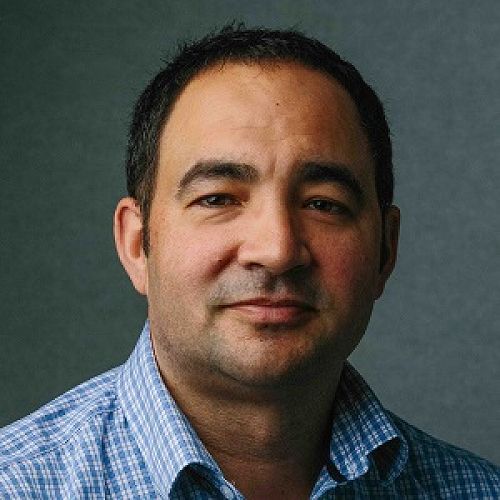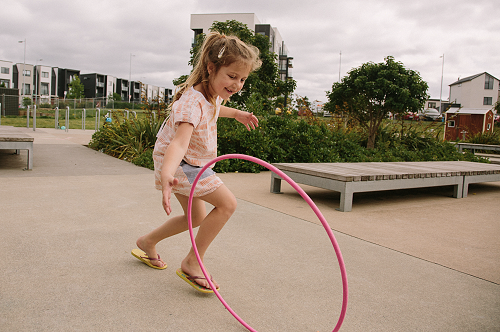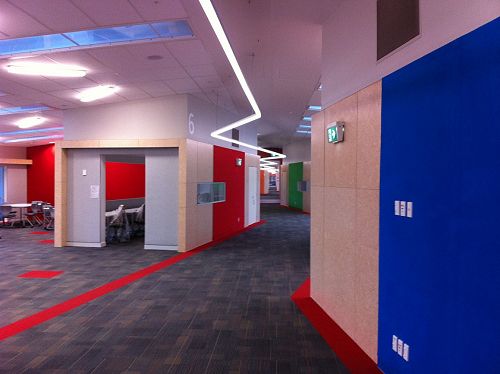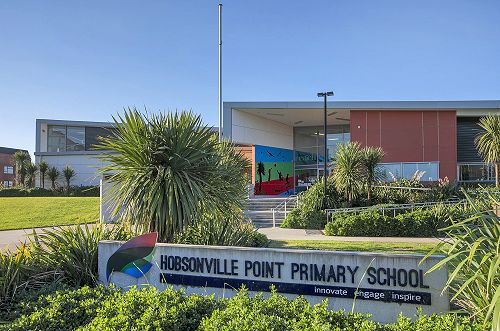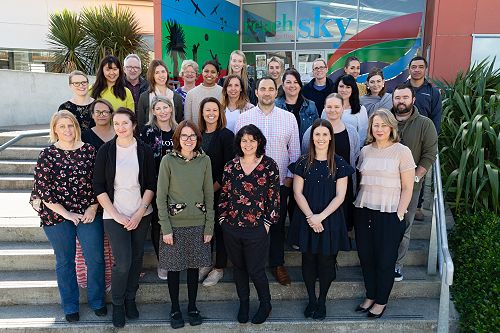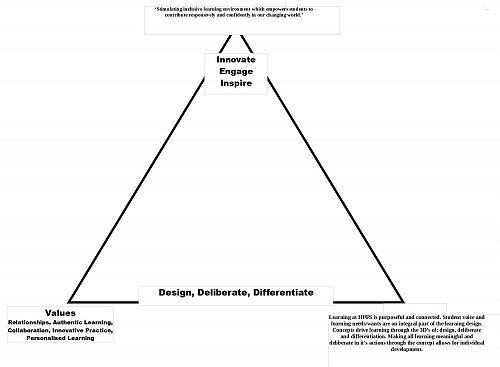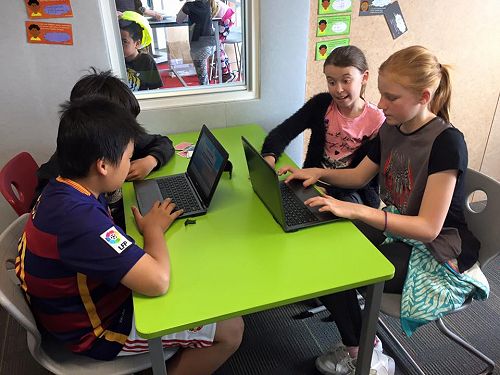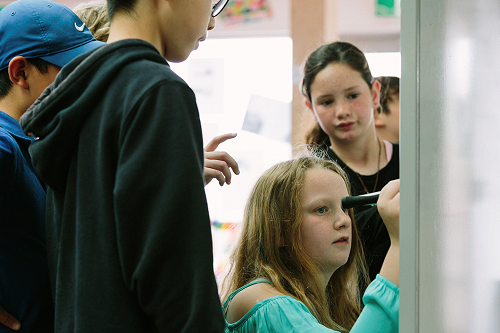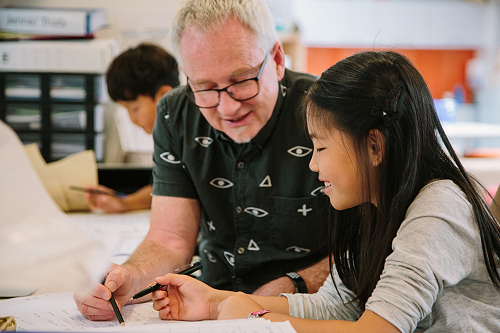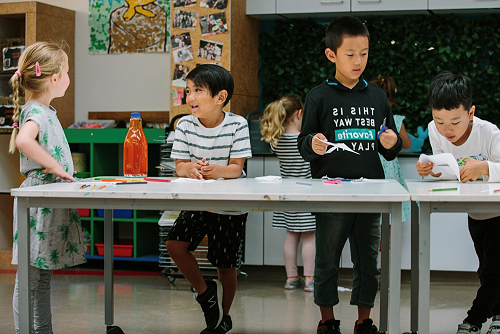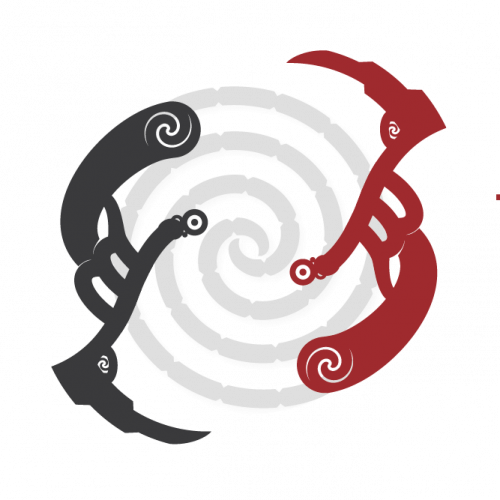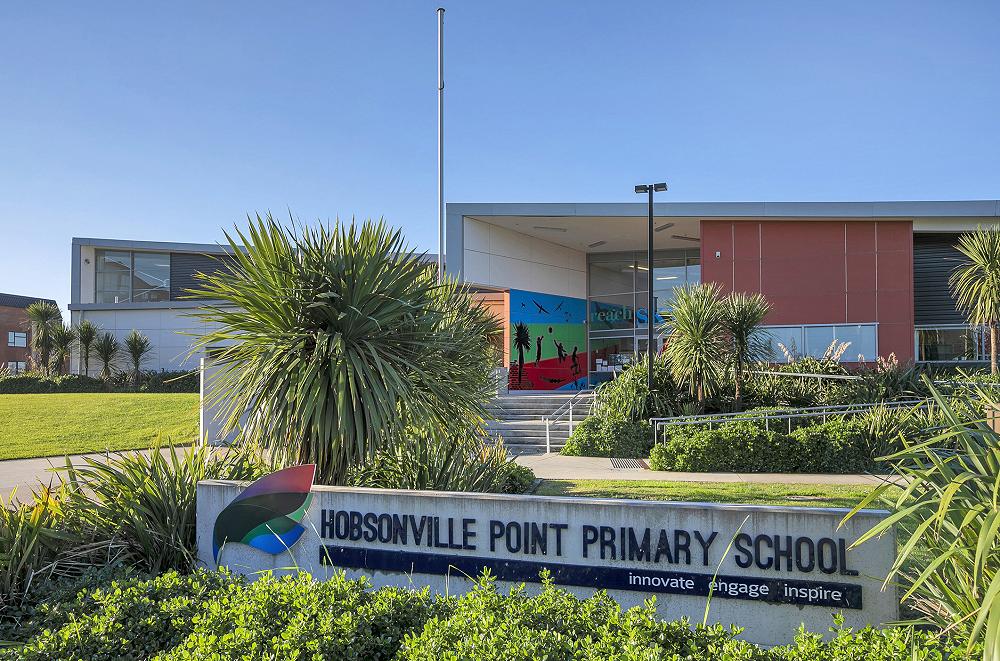
Hobsonville Point Primary School - curriculum reflections ten years on
Daniel Birch, foundation tumuaki at HPPS, shares some insights about his school curriculum after being open for learning since 2013 - including to always ask, "Why do we do what we do, the way we do it?"
Kia ora, I have been teaching since forever and a principal since 2004. My passion for change leads a lot of what I do. I like to disrupt and champion those who are not successful. I have worked in future focused education since 2001 when I was foundation DP at Discovery 1 in Christchurch. And, moved to Auckland in 2012 to open Hobsonville Point Primary. I have a passion for cooking, collecting records (vinyl), the beach, and watching all sports (dodgy knees means participating is challenging). I have an amazing family with three great kids, all currently studying at uni. ~Dan Birch.
Can you tell us a little about the community and environment where the school is/was established?
Hobsonville Point is a new development (2012) built on the old air force base. The school was built at the start of the development and has been filling up ever since. The initial plan for the area was 2500 houses, there is now planning for well over 6000 houses. It is a high density area with shared green spaces and the schools as the hubs. Hobsonville Point Secondary was opened the year after us and we share similar kaupapa and one board. This connection is productive and makes governance and leadership really clear. We work together for a common outcome - sharing budgets/staff/ideas, etc.
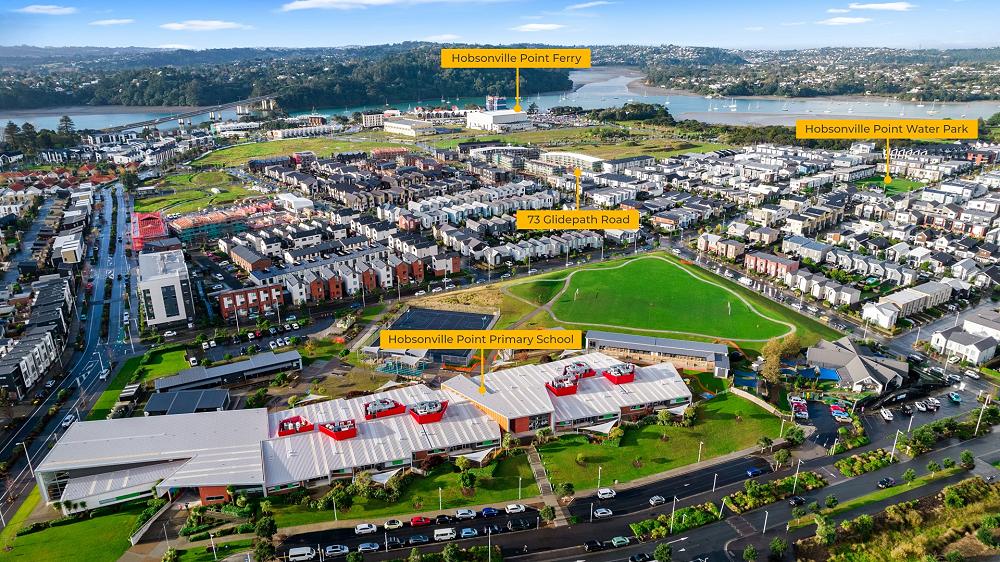
To what extent does, or might, your school ensure that teaching and learning is authentic and meaningful for your ākonga?
From the outset we wanted learning to be about the complex future the students would be heading into. We designed a strong set of learning values that drive all our thinking → relationships, innovative practice, authentic learning, collaboration and personalised learning. We have a dispositional curriculum designed to support students become successful, whole people. Our curriculum delivery is based around big concepts and the learning that can be connected to multiple curriculum areas through that experience. The learner profile that has been constructed enables our learners to self-assess and make meaningful connections to the NZC. Our educators map out real-time learning stories, which take shape on the walls around the school.
In what ways do, or might, you offer multiple pathways for all ākonga to experience success?
Students are active participants in the learning design. They can share what they are learning and why. Planning is shared with them so that they understand the big picture. Co-agency is encouraged, so staff and students come together to design appropriate learning for each student. Read more here: https://www.hpps.school.nz/our-learning We are currently refreshing our Learner Profile (see original below).
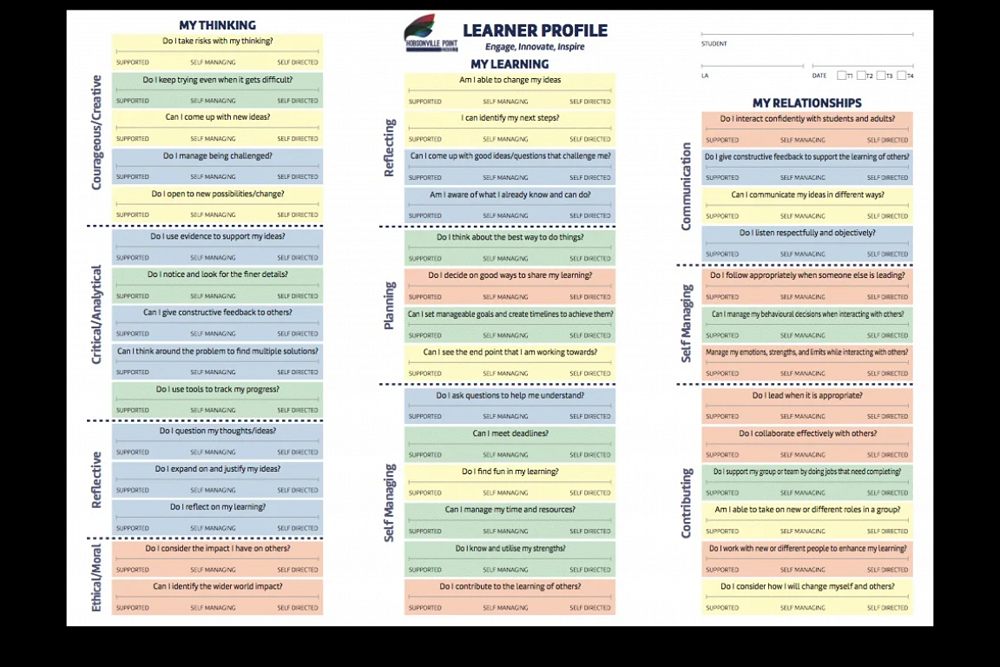
How does the diversity of your students influence curriculum design (e.g so learners see themselves in the curriculum)?
A constant challenge and influence on our curriculum design is the incredible diversity of the school and the fact that it is always changing. We educate parents so they know learning will look different (from what they might be used to), and we work alongside students so they understand the journey they are on.
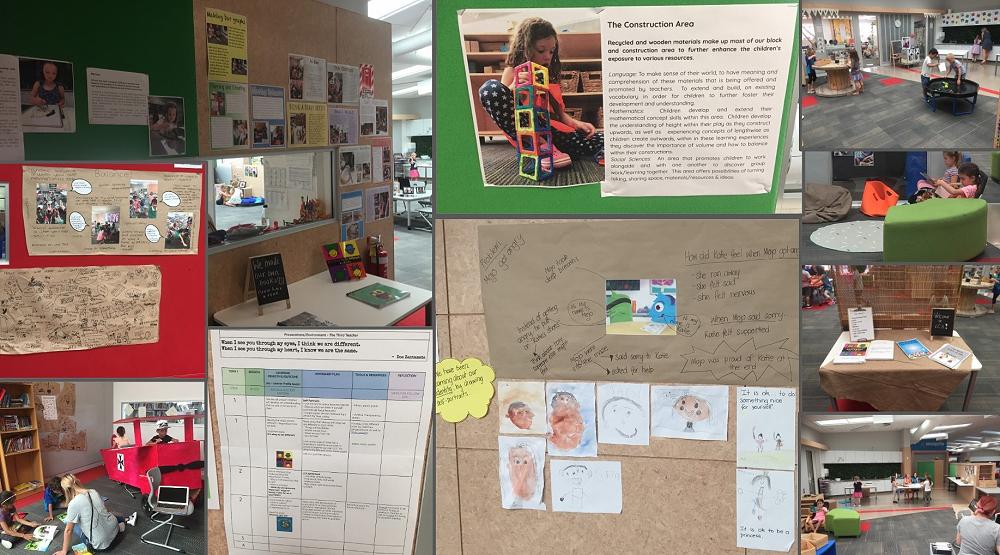
How do, or might, you explore whether you have the appropriate mix of teacher guided, co-created, and self-regulated authentic learning opportunities?
We work hard to make sure all learning is authentic and connected. The learning areas are linked to the dispositions and the learning profile. Students have opportunities to work in teacher-led workshops based on a range of data collected, as well as suggesting workshops required based on their own perceived needs. Staff design both responsive and data driven workshops, so students are learning at the point of need connected to the concept and the skills/knowledge required to be successful.
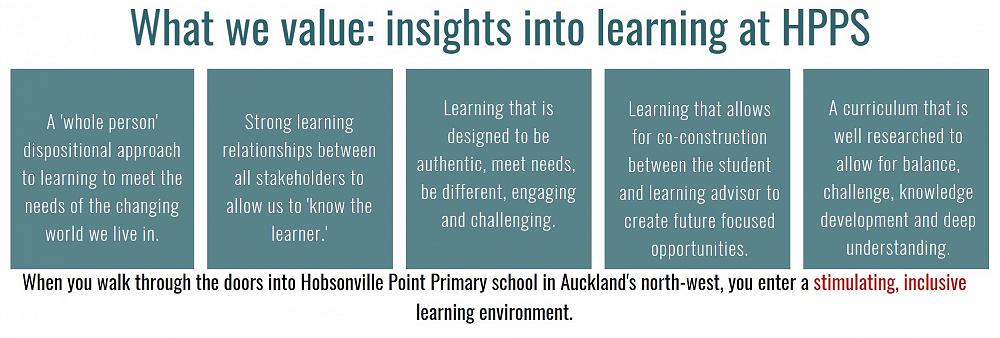
Do you, or how will you, communicate clear expectations and have a strong culture of formative feedback?
We have a vertical structure within the school, so leaders have a range of teams they support and staff can access different supports. I run 1:1s, so I connect with staff on a regular basis. Collaborative teams are engaged in reflective practice to better their approach as part of the growth cycle.
To what extent are you working with the wider community to explore and develop authentic learning opportunities?
We have a data base of parent skills, which helps us access skills we might need, pre-Covid parents were in and out of the school all the time. These current times have challenged that. We have emerging relationships with the local iwi and work well with local business.
To what extent are you continuing to explore and review innovative learning practices and new approaches?
We reflect as a school on a regular basis, and as our roll continues to grow we continue to need new staff. Leveraging off the lockdowns we are currently doing a full reset of our educative purpose to make sure all are on a shared waka. This is an important aspect of getting a shared understanding of the ways we work and the values that drive our learning.
Have / how have your flexible learning spaces influenced the curriculum design/pedagogical approaches that are inherently HPPS?
Space is an enabler but not why we do what we do. It does allow us to be flexible in our approach and encourage collaboration, that can helpful.

Any final thoughts?
It is important when starting a new school that you start your thinking again. If you try and replicate or copy you won’t achieve what you want, and you might miss the opportunity to capitalise on the blank canvas nature of a new school. You have to re-imagine. Research is critical - what is possible? Why? How?, etc. Think about the challenges students will face in the future and how you might prepare them. And, always ask yourself "Why do we do what we do, the way we do it?"
Learn more about Hobsonville Point Primary on their website https://www.hpps.school.nz/ and enjoy the video below.
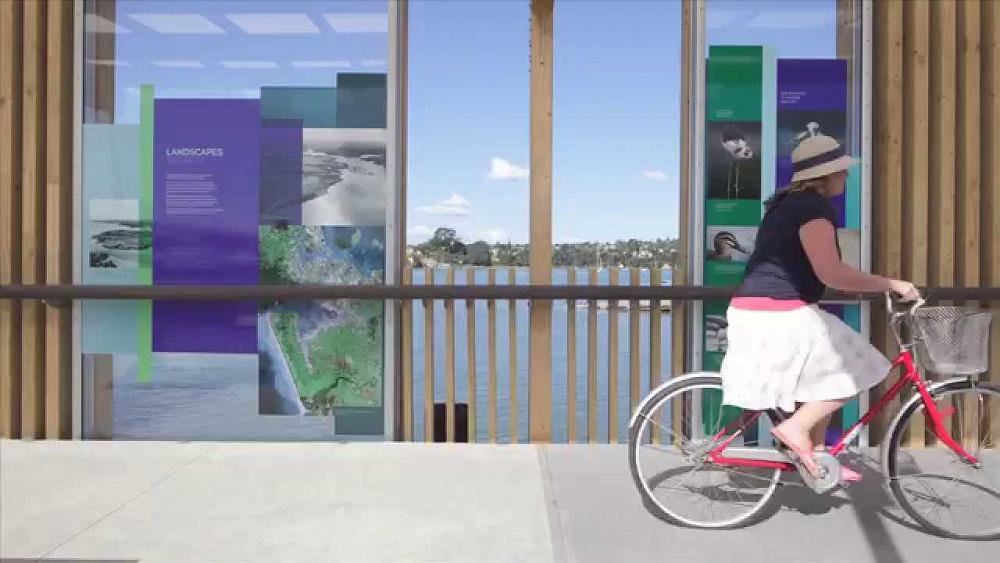
Gallery
